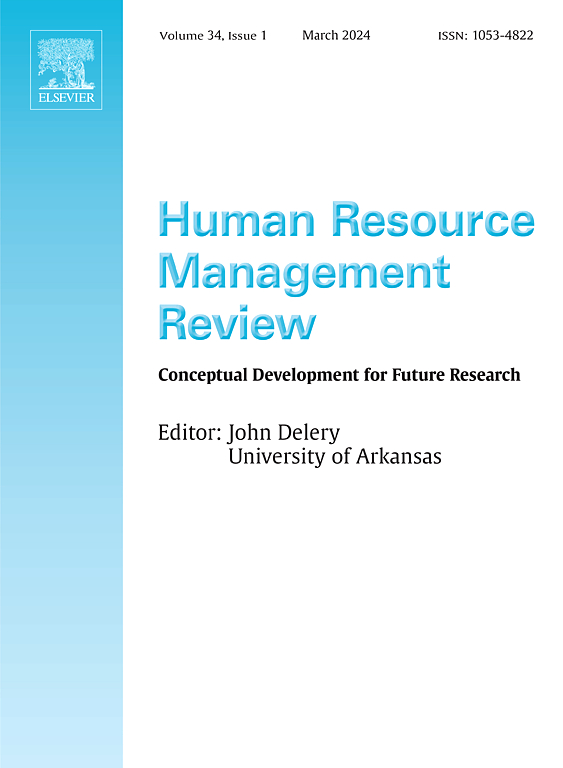Delivering high-quality feedback is a choice: A self-regulatory framework for understanding feedback provision in organizations
IF 13
1区 管理学
Q1 MANAGEMENT
引用次数: 0
Abstract
Effective performance management depends on managers providing their subordinates with high-quality, corrective feedback when performance falls below expectations. Yet, there is considerable variance in the feedback that managers provide, and the current literature provides only fragmented explanations for why many managers sometimes neglect such a crucial behavior. To address this gap, we apply self-regulatory theories to develop a model of feedback-giving that integrates insights from the performance management and motivation literatures. We argue that feedback-giving is a goal-driven behavior that exists within a complex hierarchy of competing and complementary managerial demands. This theoretical lens provides much-needed insights to clarify reasons that managers may fail to devote sufficient effort to providing feedback to their subordinates. We conclude by applying our model to provide practical recommendations to improve performance management systems and leadership development programs in businesses.
提供高质量的反馈是一种选择:用于理解组织中的反馈提供的自我监管框架
有效的绩效管理取决于管理者在绩效低于预期时为下属提供高质量的、纠正性的反馈。然而,管理者提供的反馈存在相当大的差异,目前的文献只提供了零散的解释,为什么许多管理者有时会忽视这样一个关键的行为。为了解决这一差距,我们运用自我调节理论开发了一个反馈给予模型,该模型整合了绩效管理和激励文献的见解。我们认为,反馈是一种目标驱动的行为,存在于竞争和互补的管理需求的复杂层次结构中。这一理论视角提供了急需的见解,以澄清管理者可能没有投入足够的努力向下属提供反馈的原因。最后,我们将运用我们的模型,为改善企业绩效管理系统和领导力发展项目提供实用建议。
本文章由计算机程序翻译,如有差异,请以英文原文为准。
求助全文
约1分钟内获得全文
求助全文
来源期刊

Human Resource Management Review
MANAGEMENT-
CiteScore
20.20
自引率
7.00%
发文量
0
审稿时长
48 days
期刊介绍:
The Human Resource Management Review (HRMR) is a quarterly academic journal dedicated to publishing scholarly conceptual and theoretical articles in the field of human resource management and related disciplines such as industrial/organizational psychology, human capital, labor relations, and organizational behavior. HRMR encourages manuscripts that address micro-, macro-, or multi-level phenomena concerning the function and processes of human resource management. The journal publishes articles that offer fresh insights to inspire future theory development and empirical research. Critical evaluations of existing concepts, theories, models, and frameworks are also encouraged, as well as quantitative meta-analytical reviews that contribute to conceptual and theoretical understanding.
Subject areas appropriate for HRMR include (but are not limited to) Strategic Human Resource Management, International Human Resource Management, the nature and role of the human resource function in organizations, any specific Human Resource function or activity (e.g., Job Analysis, Job Design, Workforce Planning, Recruitment, Selection and Placement, Performance and Talent Management, Reward Systems, Training, Development, Careers, Safety and Health, Diversity, Fairness, Discrimination, Employment Law, Employee Relations, Labor Relations, Workforce Metrics, HR Analytics, HRM and Technology, Social issues and HRM, Separation and Retention), topics that influence or are influenced by human resource management activities (e.g., Climate, Culture, Change, Leadership and Power, Groups and Teams, Employee Attitudes and Behavior, Individual, team, and/or Organizational Performance), and HRM Research Methods.
 求助内容:
求助内容: 应助结果提醒方式:
应助结果提醒方式:


